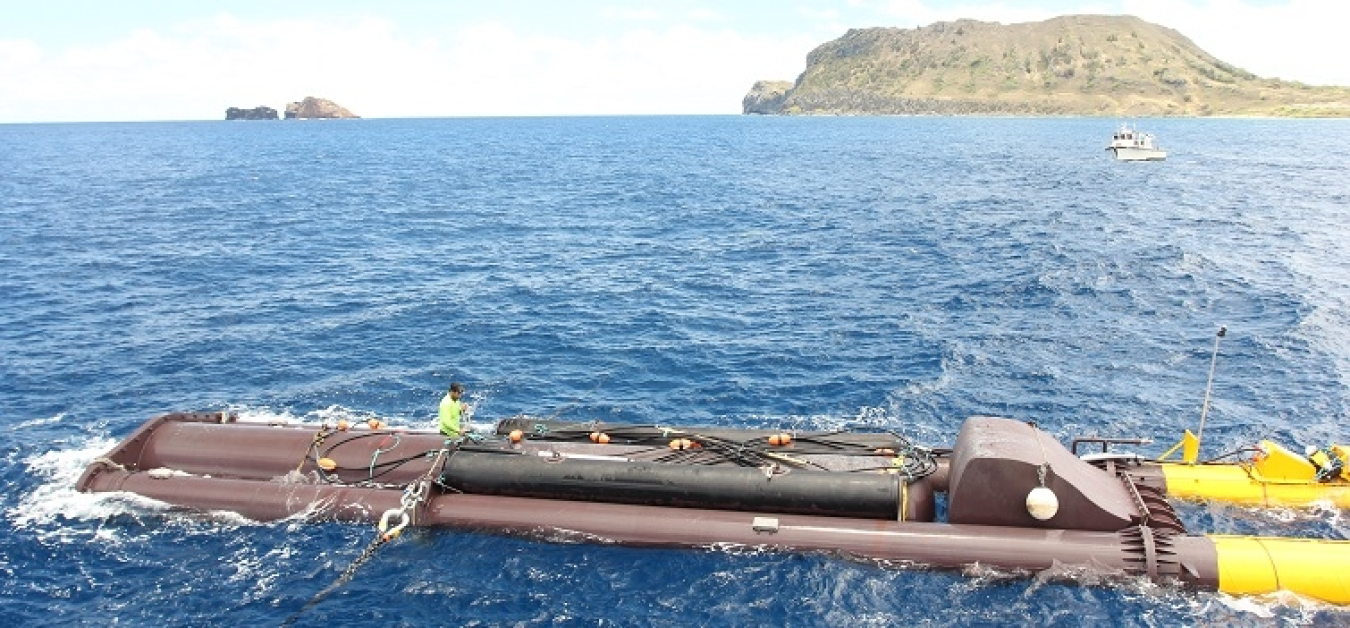
Instrumentation is the Achilles’ heel of testing. Due to the impact that the conditions found in marine environments place on a device’s ability to function in the water, the need to have the most ideal and high-quality measurements is critical to the success of any test being planned. The salty and turbulent nature of the ocean creates a harsh environment that challenges even the best designed instrument. With a vast range of instruments and performance metrics that can cost tens of thousands of dollars, how does one select the best technology to put in the water?
Experience gained in the development of renewable energy, aerospace, and automotive technologies has demonstrated that sharing and disseminating technical expertise accelerates the pace of technology development and rapidly progresses the industry towards commercial viability. High-quality field and laboratory measurements of resource, loads, performance, and environmental interactions are critical to advancing marine and hydrokinetic (MHK) technologies and the MHK industry. These measurements help improve technology characterization, engineering practices, standards, safety, permitting, engineering tools, and resource assessment. Collecting those data for the MHK industry requires robust measurement systems that can operate in the harsh ocean environment, with the ability to provide a broad set of coordinated, high-quality measurements. In order to operate in the ocean, devices need to be built to withstand corrosion, water ingress, fouling, and water pressure, without disturbing the natural marine environment.
In 2011 and 2012, the Department of Energy (DOE) supported two sensor and instrumentation workshops where MHK experts identified several key gaps in measurement capabilities. Reports were generated from the 2011 and 2012 workshops.
The two gaps identified:
- The ability to openly communicate, share and archive lessons learned and knowledge in the area of measurement and field testing within the MHK community; and
- A resource to help select sensors and instrumentation based on measurement requirements, field experience, and actual performance.
In response, DOE’s Water Power Program created the MHK Instrumentation & Sensor Database and Community of Practice. This database provides a searchable collection of marine instruments with associated specifications, user experience, and application advice. Users can quickly locate instruments that meet their needs while leveraging others’ experience to help their test be successful.
In order to maximize measurement success, the MHK instrumentation database fills critical gaps in obtaining high-quality data—it provides a search tool to quickly identify sensors and share user experience, identify instruments based on test needs, and a community forum to discuss topics with other users. By selecting the best instruments and understanding how to use them not only increases the success rate of testing, but also ensures that sensors and instruments function properly for the duration of the test. This yields higher-quality and more relevant data that represent critical knowledge needed to accelerate industry development, reduce deployment barriers, and inform investors.
